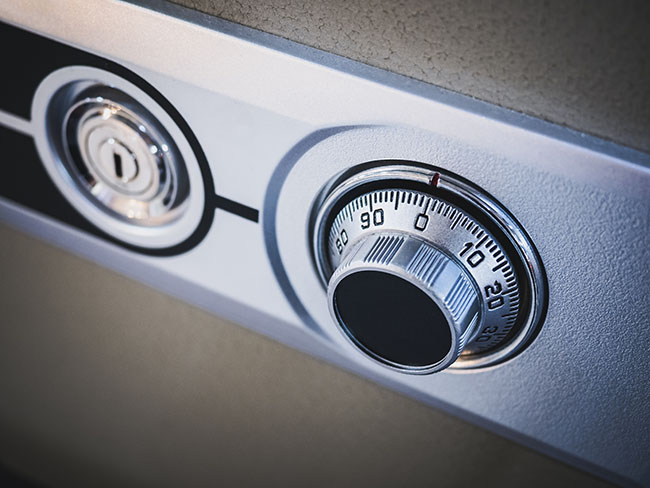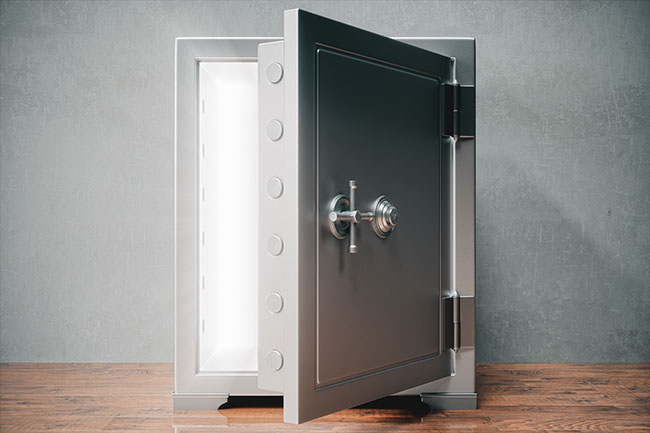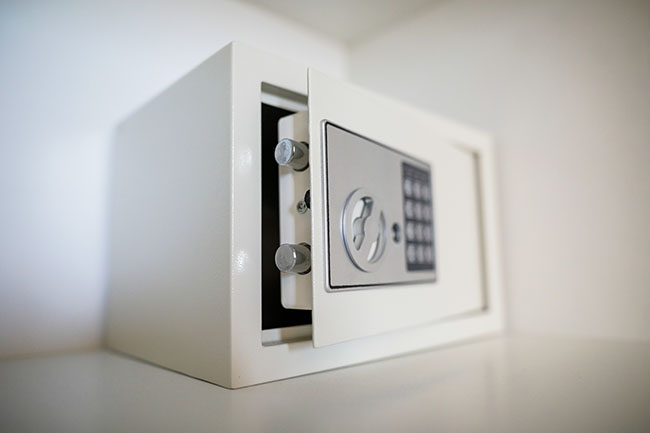How To Choose The Right Safe For You
A good safe will secure your possessions away from inquisitive eyes. A great safe will protect your assets from unpredictable events. Choosing the right safe for you is an essential part of securing the protection you need, and there are dozens of options to choose from. Luckily, A&B Security has mapped out the 4 most popular intended uses for safes in our handy Safe Buying Guide.
If you’ve already seen this, perfect, you are in the right place. If not, that’s okay, too! When seeking the perfect commercial safe for your business, there are three main factors to acknowledge.
- First, consider its intended use.
- Then evaluate the type and level of protection you need.
- Finally, determine the security features and locking mechanisms needed for optimal protection.
What Will Your Safe Be Used For?
Different types of valuables are better suited for different kinds of safes. The size and weight of your safe are determined by how small or large your contributions are, and where the unit will be placed.
Are you looking for a:
- Deposit and cash safe, under-counter, or drop safe? Typically seen in retail or food service settings, these are meant to hold large amounts of cash flow and sensitive documents. Because they are routinely emptied, they are often secured in a public area with easy access for deposits, but extremely limited access for withdrawals.
- Wall or floor safe? These will keep your items out of sight and are great for small, low-stake security purposes. These are usually thinner and smaller than traditional safes, and additional features, like fireproof barriers or cover plates, can be added to increase protection.
- Gun safe? Gun safes are an essential safeguard to invest in and come in all sizes and styles. Because guns are one of the top 5 most commonly stolen items, the safe you choose should be impenetrable to outsiders, yet still easy for you to access when needed.
- Residential Safe? A classic, residential safe is a timeless option to ensure your contents receive up-to-standard levels of protection. Because there’s such a wide range of options, you can truly find the best fit for your intended use.

If you’re still not sure which option is best for you, our specialists will work with you to determine which one fits your needs and location best, whether you will need administrative access and control, and how often your safe may need a new lock.
Common Question: “Should my safe be bolted down?”
A&B Answer: As a rule of thumb, we recommend any safe under 1,000 LBS be bolted to the floor.
What Kind of Protection Will do You Need?
With your safe’s purpose established, you can consider what protective features might be most beneficial to you. What are you most concerned about? Do you need protection against natural hazards, like fire or flooding? Protection from theft or burglary? Or protection for the safety of others, like small children, employees, or the elderly?
Quality brands can offer specific ratings and details on their safe’s effectiveness against specific hazards. This is why it’s important to consider which threat is most pressing, and how you can further protect your assets once locked inside. For example, a standard fire-resistant safe can work, but can only safeguard against humidity, moisture, and internal temperature damage up to a point. It’s important to be conscious that data, media, photographs, and the like may need additional internal protection within the safe, for all possibilities.
Common Question: “Can my safe be easily compromised?”
A&B Answer: It depends on the safe. Burglary protection safes are constructed with plate steel and hard plate that protects the lock and bolt work, while some box store brands are constructed with sheet metal and a dry powder cladding that protects to a certain point. If you are unsure what kind you have, call or email one of our security experts with the manufacturer and model number.
Which Locking Mechanism Works Best For You?
Your safe’s locking mechanism is responsible for retracting the locking bolts in your safe’s door. Your options may be limited to what works best with the type of safe, its size, and intended placement. But generally, standard lock options include:
- Keypad Code – Inputting your code on an electronic keypad, this type of lock is widely utilized because of its ease of use.
- Dial or Combination Lock – This option is an industry classic. It’s sturdy and reliable, without a battery requirement.
- Biometric Lock – Notably one of the most secure locking options available, biometric locks include personal identification, like fingerprints or retinal scans, to quickly identify and unlock for the right person.
- Key Lock – The standard lock and key method works best for those who cannot remember codes or combinations and do not need or want biometrics.
When deciding on which lock to invest in, always consider their ratings, what they will be safeguarding, how quickly you may need access to what’s inside, and how visible your unit will be. These factors fully contribute to the overall security of your commercial or residential safe.

Common Question: “What happens if my electronic lock dies?”
A&B Answer: Your lock will give you low-battery warnings for weeks leading up to its loss of power. In an emergency, a professional locksmith can open and help change the locking mechanism – often for less than the cost of a new safe.
Keep Your Assets Safe
At A&B Security, we know our safes. We strive to have the highest level of knowledge and training in all areas of the security industry. That’s why we make it our mission to consistently offer customers the best products, services, and solutions possible. Contact us today for expert advice on commercial or residential safes, customized solutions, or professional installation services.



